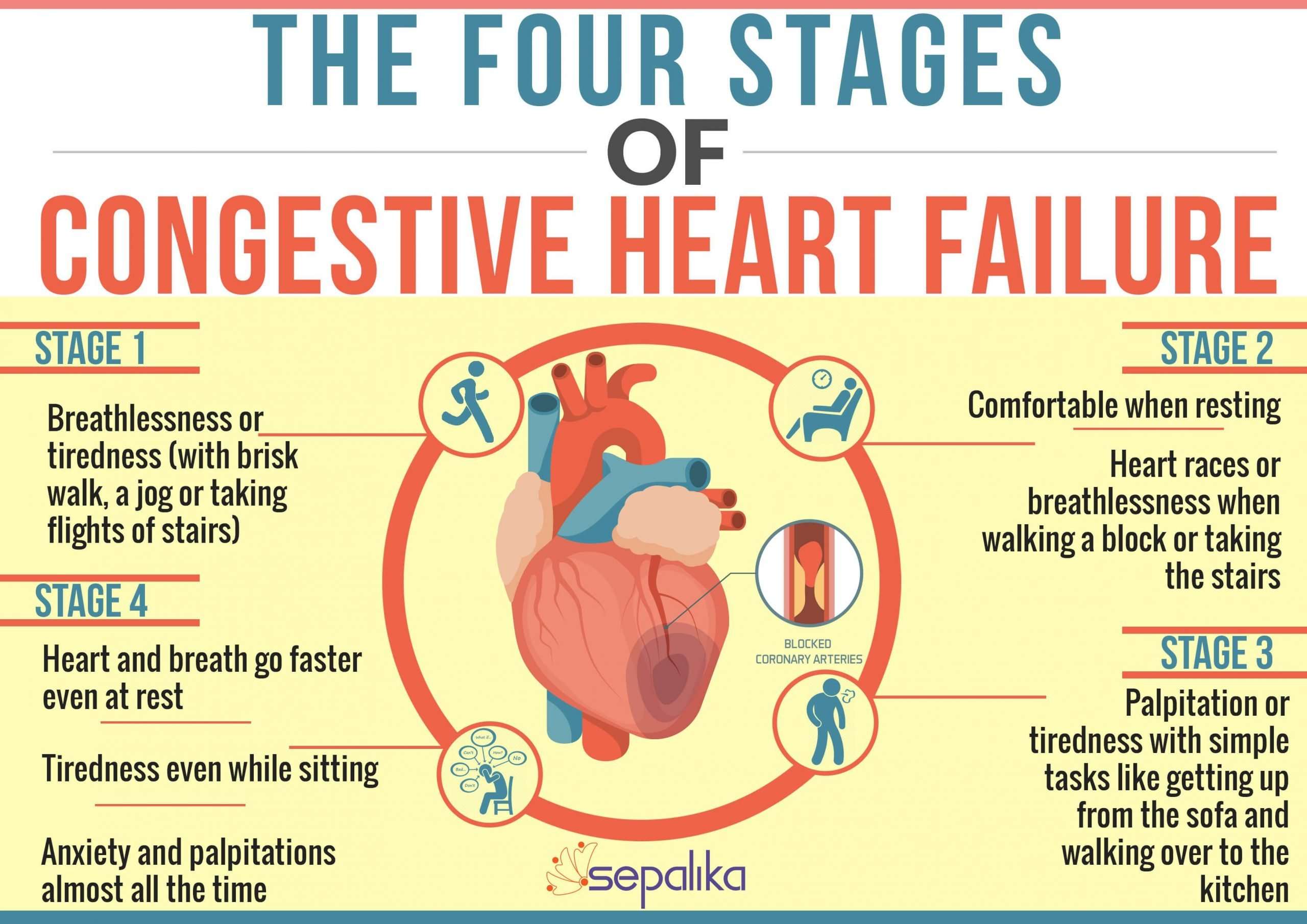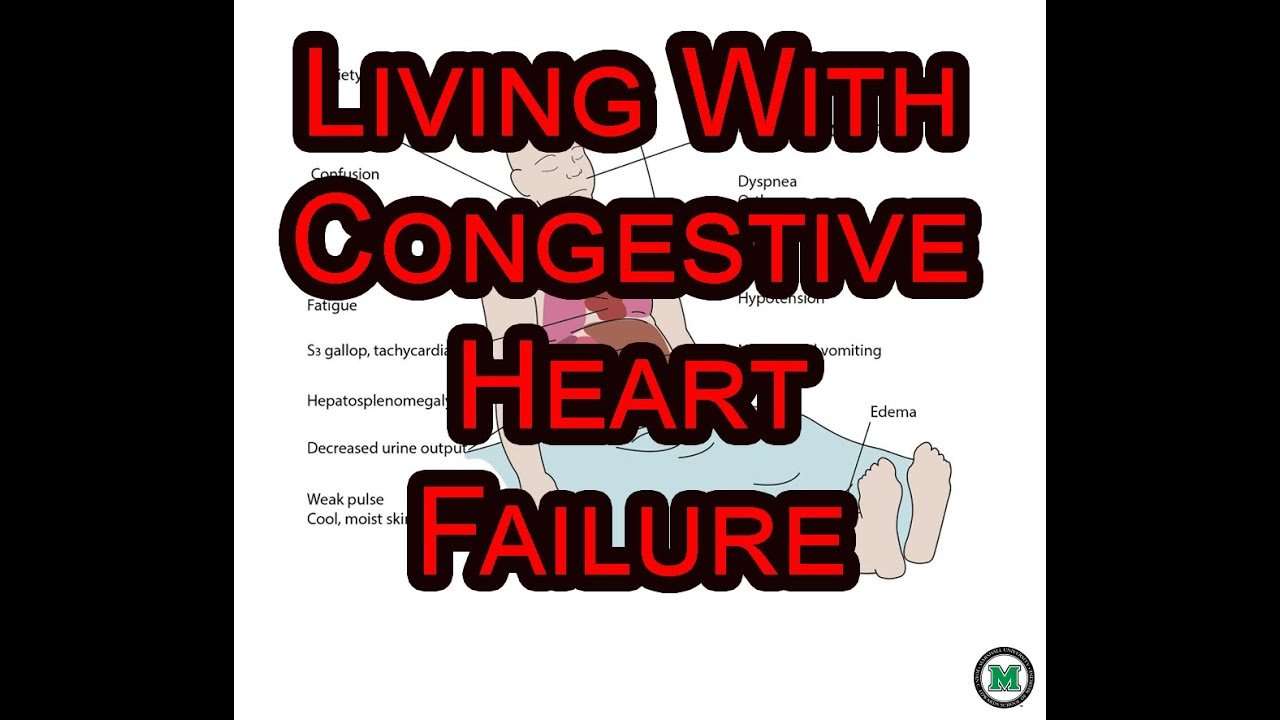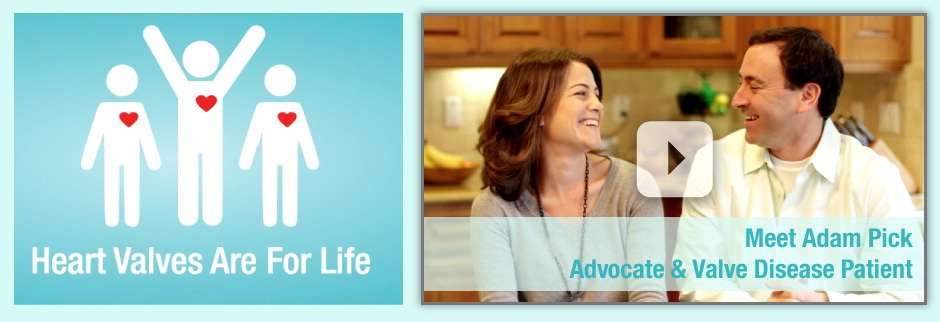Stage Of Heart Failure And Life Expectancy:
The lower your stage of heart failure is, the longer you will live. People with Stage A of heart failure, may live for about 20 years, if they check their lifestyle, eat healthy, drink healthy and exercise properly. People with Stage B may not realize the signs and symptoms as they take rest. However, while taking a flight of stairs, or while walking or running, they might feel breathless or tired. They will live slightly shorter than people with Stage A heart failure.
However, research studies, as published in Circulation Research journal, in the August 2013 issue, have shown that about 50% of heart failure patients have lived for more about 5 years. About 10% of all their subjects have lived for about 10 years. However, in case the patient is in the Stage D, 90% of the patients will die within a year. That is how the stage of the heart failure is important in determining the life expectancy of the patients.
Heart Failure Patients Too Optimistic
Study Shows Patients Overestimate Their Life Expectancy
A new study shows nearly two-thirds of people with congestive heart failure overestimate their remaining life expectancy by an average of 40% compared with what’s realistic based on their prognosis.
Heart failure, which occurs when the heart is too weak to pump enough blood to meet the body’s needs, causes 55,000 deaths each year and indirectly contributes to 230,000 more deaths annually in the U.S.
Although there have been recent improvements in congestive heart failure treatment, researchers say the prognosis for people with the disease is still bleak, with about 50% having an average life expectancy of less than five years. For those with advanced forms of heart failure, nearly 90% die within one year.
“Patient perception of prognosis is important because it fundamentally influences medical decision making regarding medications, devices, transplantation, and end-of-life care,” write researcher Larry A. Allen, MD, MHS, of the Duke Clinical Research Institute and colleagues in The Journal of the American Medical Association.
A: Patient Understanding Of Disease And Prognosis
A1: Dealing with advanced heart failure and ageing
Patient statements revealed different levels of perspectives related to heart failure, ranging from descriptions of their illness adaption to changing conditions , appraisal of their own quality of life , and their handling of information regarding their illness .
A1.a: Perception of heart failure
The patients described various experiences with symptoms of heart failure, in particular, limitations such as shortness of breath, dizziness, and restrictions in activities of daily living. Frequently, they did not perceive heart failure as a life-limiting, chronic disease with a long-term course, but rather as a disease with acute life-threatening events. The patients often believed their condition was a result of their old age and not a genuine illness. Medical definitions and personal experiences may diverge: Despite their specific diagnosis and treatment, the patients reported feeling well. Consequently, they may play down their symptoms and not take their medications. However, changes in the patients perceptions were sometimes observed when their condition worsened:
Patient P1, T3 : But my heart, thats not really the problem. That is high blood pressure. Yes, I have that! Oh, yeah! You know, now now I have it under control. You know, I have never taken any pills. Yeah, and I watch out for my blood pressure. But if I say I take my tablets, that I do not do that anymore.
A.1b: Adaption to changing conditions
Recommended Reading: Can Ibs Cause Heart Palpitations
How Long Will I Live With Heart Failure
The congestive heart failure lifespan depends on many variables, such as the cause of heart failure, its severity, and other comorbidities.The survival rates for those affected in the general population are:
- 1-year: 81.3%
- 5-years: 51.5% and
- 10-years: 29.5%.
There are 6 million people alive in the US that suffer from this disease, and almost 1 million in the UK. The data shown above tells us that only a half of these people will survive the next 5 years.
A heart transplant, being the ultimate treatment for such a disease, prolongs the estimated survival. 20 years after a transplant, around 21% of patients are still alive.
There’s a special tool for assessing the mortality rate of heart failure patients admitted to the ICU.
What Are The Types Of Heart Failure

There are many causes of heart failure, but the condition is generally broken down into two types:
Heart failure with reduced left ventricular function The lower left chamber of the heart gets bigger and cannot squeeze hard enough to pump the right amount of oxygen-rich blood to the rest of the body.
Heart failure with preserved left ventricular function The heart contracts and pumps normally, but the bottom chambers of the heart are thicker and stiffer than normal. Because of this, the ventricles can’t relax properly and fill up all the way. Because there’s less blood in the ventricles, less blood is pumped out to the rest of the body when the heart contracts.
Also Check: What Is A Dangerously High Heart Rate When Exercising
How To Keep Heart Failure From Worsening
To keep heart failure from worsening, a patient must make major changes in their life: Theyll need to eat differently, remember to take their medications, keep as active as possible, and reduce stress. Some of these changes might require breaking habits acquired over many years. As a caregiver, you can help your loved one maximize their quality and length of life. Below are some ways to help.
Keep alert for worsening symptoms. Call the doctor immediately if you observe any of the following:
- Sudden weight gain
- Increased swelling in the legs or ankles
- Shortness of breath while at rest
- A dry, hacking cough or wheezing
- Dizzy or fainting spells
- Increased fatigue or feeling unwell all the time
- Abdominal pain or swelling
What Exactly Is Heart Failure
Dr. Mills explains, Let me start by saying that heart failure is not a specific disease. Many different types of heart disease lead to a final common pathway of heart failure.
For many patients, coronary heart disease hardening of the arteries with one or more heart attacks causes the damage that leads to heart failure.
Sometimes, an echocardiogram that was done to investigate shortness of breath or difficulty exercising reveals previously unsuspected poor pumping and/or filling action of the cardiac muscle due to undiagnosed coronary disease.
Dr. Mills continues, But for others, the underlying problem may be high blood pressure, inherited or acquired diseases of the heart muscle called cardiomyopathy, or the results of substance abuse: alcohol, cocaine or other drugs.
If we look at large numbers of patients from the ADHERE registry , for example, in 105,388 admissions from 274 hospitals, the mean patient age was 72.4 years, and 52% were women.
In this group, almost three quarters had high blood pressure, almost 60% had coronary disease and almost half were diabetic.
Don’t Miss: Can Flonase Cause Heart Palpitations
What Is Heart Failure
Heart failure indicates congestion in the heart, when the heart doesnt pump blood as well as it should. As there is reduced or slowed down blood flow from the heart, the body also receives less blood flow. As a consequence, the blood that returns to the heart through your veins backs up. Hence, there is congestion in the body tissues. That is why if blood congestions and heart conditions are not taken care of, it might swell your legs, ankles and stomach. The lungs are also filled with fluid and this is a real problem that causes breathing difficulty. Chest pain, dizziness and fatigue are additional symptoms that people with congestive heart failure will experience.
Heart Failure Life Expectancy Calculator
The heart failure life expectancy calculator is a simple, yet effective, tool for predicting the 1-year and 3-year survival odds of someone with congestive heart failure.
In the article below, we will focus on congestive heart failure/CHF prognosis, the estimates on how long can you live with congestive heart failure, and the average CHF life expectancy for a given stage of the disease.
Also Check: How To Calculate Target Heart Rate Zone
How Long Can You Live With Heart Failure
Although there have been recent improvements in congestive heart failure treatment, researchers say the prognosis for people with the disease is still bleak, with about 50% having an average life expectancy of less than five years. For those with advanced forms of heart failure, nearly 90% die within one year.
What Is Stage 4 Heart Failure
Stage 4 of Congestive Heart Failure Stage four of congestive heart failure produces severe symptoms such as rapid breathing, chest pain, skin that appears blue, or fainting. These symptoms may occur whether you are exercising or at rest. In this stage, your doctor will discuss if surgery is beneficial.
Read Also: Can Ibs Cause Heart Palpitations
Hypertension Or High Blood Pressure
Another cause of congestive heart failure is high blood pressure or hypertension. If you have high blood pressure, your heart muscle works extra hard to pump blood through your body.
As time passes, because of the overexertion, the muscles in your heart can become too weak or too stiff to properly circulate blood to your body. If you have high blood pressure, your heart muscle workextra hard to pump blood through your body.
How Long Can You Live With End

Heart failure is a chronic, progressive condition that worsens with each flare-up. Your outlook and prognosis are better if you are healthy overall, you have been following your treatment plan, and you are responding well to your treatments. Being willing to pursue invasive treatments like a heart transplant will also increase your life expectancy.
Read Also: Why Do Av Nodal Cells Not Determine The Heart Rate
Misconceptions About Heart Failure
Heart failure is a very scary term and the condition can be deadly. These traits tend to fuel many myths and misconceptions.
A few of the more common heart failure myths include:
- Heart failure can be deadly, but it isnt necessarily a death sentence.
- If you have heart failure it is OK to exercise but avoid overly vigorous activity and dont overexert yourself.
- You can still do many of the activities you enjoy. Your doctor can help you determine what you can do and how much you can do.
- Heart failure is treatable.
- Heart failure has symptoms and if you pay attention to them you could save your own life.
Suffice it to say, cardiac problems are no joke. But it is treatable and does not have to end your life.
How Long Can A Patient Live With Heart Failure
One question that most patients diagnosed with heart failure ask their doctor is how long they can expect to live. Unfortunately, your life expectancy will be drastically reduced as soon as you are diagnosed.
There is no simple answer that can be given to any one patient who has heart failure. This is because every condition is different, meaning that it will affect the heart in different ways. For example, the cause behind your condition will determine how seriously your body will react. More so, the stage of heart failure that you are in is another major contributing factor.
Read Also: Does Benadryl Lower Heart Rate
What Should I Do If I Have Chronic Heart Failure
Perhaps the best thing you can do for your kidneys is to take measures to prevent chronic heart failure. Stick to a heart-healthy diet. Keep your weight at a medically acceptable level. Do not smoke. Limit drinking. Do scheduled sessions of aerobic exercise and strength training. Drink at least six cups of water a day.
Left Ventricular Assist Devices
These may be implanted in the chest to increase heart pumping action. Until recently, LVADs required that the patient be hooked up to a large, hospital-based console while awaiting a transplant. Miniaturized battery-powered LVAD units, however, are allowing many patients to leave the hospital. The devices may be used as a primary treatment or as a bridge to heart transplant in adults.
Don’t Miss: What Is A Typical Resting Heart Rate For A Healthy Individual
Prognosis At Different Ages
Its been a widely accepted clinical opinion for many years that younger people diagnosed with CHF have a better prognosis than older people. There is some evidence to support this theory.
Older people with advanced CHF have a more difficult prognosis. In these cases, its less common to live beyond 1 year post-diagnosis. This could also be because invasive procedures to help the problem arent plausible at a certain age.
Helping Someone Manage Congestive Heart Failure
Whether your loved one lives alone, with you, or in a long-term care facility, you should encourage them to care for themselves as much as possible. Although you may be tempted to take care of everything for them, theyll feel better about themself if you help them perform tasks on their own. As long as theyre able, they should be involved in managing their symptoms and making decisions about treatment. By taking on too much responsibility for your loved one, you risk taking away their independence and exhausting yourself in the process.
Read Also: Does Benadryl Lower Heart Rate
How Do They Remove Fluid From Congestive Heart Failure
The current in-hospital treatment for CHF involves removal of excess fluid with diuretic medication and/or ultrafiltration in which a machine bypasses the kidneys and filters water and salt from the body. However, these treatments can have unwanted side effects such as low blood pressure and worsening kidney function.
What Are The Stages Of Heart Failure

Heart failure is a chronic long-term condition that gets worse with time. There are four stages of heart failure . The stages range from “high risk of developing heart failure” to “advanced heart failure,” and provide treatment plans. Ask your healthcare provider what stage of heart failure you are in. These stages are different from the New York Heart Association clinical classifications of heart failure that reflect the severity of symptoms or functional limits due to heart failure.
As the condition gets worse, your heart muscle pumps less blood to your organs, and you move toward the next stage of heart failure. You cannot go backwards through the stages. For example, if you are in Stage B, you cannot be in Stage A again. The goal of treatment is to keep you from progressing through the stages or to slow down the progression.
Treatment at each stage of heart failure may involve changes to medications, lifestyle behaviors and cardiac devices. You can compare your treatment plan with those listed for each stage of heart failure. The treatments listed are based on current treatment guidelines. The table outlines a basic plan of care that may apply to you. If you have any questions about any part of your treatment plan, ask a member of your healthcare team.
You May Like: Thrz Calculator
Just How Long Can A Person With Chronic Heart Failure Live
First off, not all people with chronic heart failure experience congestion .
This is why doctors now prefer the term chronic rather than congestive. Nevertheless, the potential life span of someone with chronic heart failure is an intriguing topic.
Can the patient ever make it to 100? Or is it impossible for anyone this old to have chronic heart failure?
Well, lets put it this way. Its easier to see someone living to 100 whose heart failure began in the early 90s than someone who was diagnosed with this disease in the 70s.
A better question might be: Can a person whos diagnosed with heart failure at a very elderly age live to a hundred?
The short answer is probably a guarded yes for those who develop symptoms very late in life, says Roger Mills, MD, cardiologist and former professor of medicine, University of Florida, and author of 240 Beats per Minute. Life with an Unruly Heart.
Manage Depression And Anxiety
Depression and anxiety are common in people with congestive heart failure. Feeling unwell, being unable to do some of the things they once enjoyed, and uncertainty about the future can all contribute to feelings of sadness. But if the person youre caring for seems consistently unhappy, they may be depressed. Look out for these signs of depression, and if you notice any, notify their doctor:
- Frequent crying episodes
- Feelings of hopelessness or worthlessness
- Poor appetite or increased appetite
- Sleeping too much or not enough
- Increased agitation and restlessness
- Loss of interest in life
- Expressing thoughts of dying or suicide
Depression is a serious problem that requires evaluation and treatment. But you may be able to help manage your loved ones moods with these activities:
Don’t Miss: Can Lexapro Cause Heart Palpitations
Surgical Options To Treat Underlying Causes Of Heart Failure
- Coronary artery bypass graft or angioplasty to prevent and treat heart failure caused by blocked arteries. During bypass surgery, blood vessels taken from another part of the body usually the leg are used to link the open parts of a blocked artery around the blockage. In angioplasty, a thin flexible tube called a catheter is inserted through a small incision in the groin or neck into a blood vessel. In one procedure, a balloon is introduced through the catheter into the center of a blocked blood vessel. When the balloon is inflated, the blockage material is compressed back against the walls of the artery. A small metal device, called a stent, may be inserted through the catheter to serve as a permanent barrier to keep the plaque compressed. In another type of procedure, instruments are introduced through the catheter to remove the plaque.
- Implantation of pacemakers and other devices such as artificial heart valves
- Repairing congenital heart defects
Surgical treatments for heart failure itself include:
